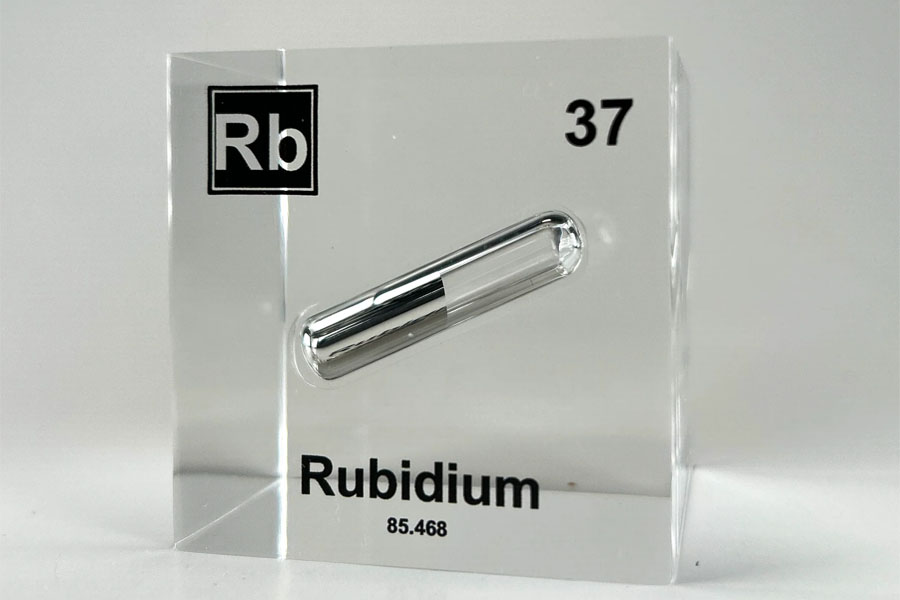
Quantum computing has long held the promise of revolutionizing computational capabilities, but the field has faced significant hurdles, particularly in error rates and the need for extreme cooling. However, a breakthrough reported in the journal ‘Nature‘ by researchers from various US universities brings us a new era in quantum computing. The team, led by Dolev Bluvstein, showcases a quantum processor utilizing rubidium atoms, a departure from the conventional superconducting qubits. This innovation not only promises heightened performance but also eliminates the need for tedious cooling processes. In this article, let’s dive into discussing the latest breakthrough i.e. Rubidium-based quantum computer.
Rubidium-based Quantum Computer: Overview
Transitioning Away from Superconducting Qubits:
Traditionally, quantum chips have employed superconducting qubits, necessitating helium cooling to near absolute zero. This poses practical challenges and limits the scalability of quantum computers. In contrast, the rubidium-based quantum computer operates efficiently at room temperature, significantly departing from the stringent cooling requirements of existing quantum computing technologies.
Leveraging Laser-Cooled Atoms for Efficient Photon Interconversion
Rubidium-based quantum computers harness the unique properties of laser-cooled rubidium atoms to facilitate the conversion between photons with vastly different energies. Furthermore, the valence electrons of these atoms transition between energy levels, compensating for energy differences and enabling the creation of a network of quantum computers. Placing laser-cooled rubidium atoms inside a resonator acts as a photon trap, fostering more interactions and efficient interconversion.
Dressing Up Rubidium for Fascinating Computations:
Researchers have achieved a remarkable transformation with ultracold rubidium atoms, compelling them to act like point-like charged particles. This opens up possibilities for peculiar forms of computation, drawing parallels to the cyclotron motions of electrons in a magnetic field. The ability to manipulate rubidium atoms in this manner provides physicists with valuable insights into potential advancements in quantum computing.

Super-Sized Atoms and Brain-Inspired Algorithms:
Simulations involving a quantum computer composed of six rubidium atoms suggest the capability to run brain-inspired algorithms. This hints at the potential of rubidium-based quantum computers to delve into complex computations, showcasing this groundbreaking technology’s versatility and other applications.
- Also, read
Reducing Susceptibility to Errors:
Quantum computers have historically with error correction, required a large number of physical qubits to calculate a ‘logical’ qubit. The Nature study reports a substantial improvement in error correction efficiency, measured as ‘code distance.’ The rubidium-based quantum computer is one step closer to tackling tasks deemed too complex for conventional computers, as they continue to evolve and mature.

Rubidium-based Quantum Computer: Conclusion
Rubidium-based quantum computers have emerged as a game-changer in the realm of quantum computing. By harnessing the distinctive properties of rubidium atoms, these processors overcome challenges in photon interconversion efficiency and error susceptibility. The advent of room-temperature quantum computing signifies a crucial moment in unlocking the full potential of quantum capabilities. As research advances, rubidium-based quantum computers are set to redefine computational power boundaries, heralding a new era of technological advancement.
- Meanwhile, watch our video of Redmi 13C 5G







![Best Gaming Laptops in Nepal Under Rs. 250,000 (रु 2.5 Lakhs) [2025] Best Gaming Laptops Under 2.5 lakhs in Nepal [Feb 2025 Update]](https://cdn.gadgetbytenepal.com/wp-content/uploads/2025/02/Best-Gaming-Laptops-Under-2.5-lakhs-in-Nepal-Feb-2025-Update.jpg)
![Best Gaming Laptops in Nepal Under Rs. 120,000 (रु 1.2 Lakhs) [2025] Best Budget Gaming Laptops Under Rs 120000 in Nepal 2025 Update](https://cdn.gadgetbytenepal.com/wp-content/uploads/2025/05/Best-Budget-Gaming-Laptops-Under-Rs-120000-in-Nepal-2024-Update.jpg)
![Best Laptops Under Rs. 80,000 in Nepal [2025] Best Laptops Under 80,000 in Nepal March 2025 Update](https://cdn.gadgetbytenepal.com/wp-content/uploads/2025/03/Best-Laptops-Under-80000-in-Nepal-March-2025-Update.jpg)
![Best Gaming Laptops in Nepal Under Rs. 200,000 (रु 2 Lakhs) [2025] Best gaming lapotp under 2 lakhs Nepal Feb 2025](https://cdn.gadgetbytenepal.com/wp-content/uploads/2025/01/Best-Gaming-Laptops-Under-2-Lakh-Nepal-Feb-2025-Update.jpg)

![Best Mobile Phones Under Rs. 15,000 in Nepal [Updated 2025] Best Phones Under 15000 in Nepal 2024 Budget Smartphones Cheap Affordable](https://cdn.gadgetbytenepal.com/wp-content/uploads/2024/03/Best-Phones-Under-15000-in-Nepal-2024.jpg)
![Best Mobile Phones Under Rs. 20,000 in Nepal [Updated] Best Mobile Phones Under NPR 20000 in Nepal 2023 Updated Samsung Xiaomi Redmi POCO Realme Narzo Benco](https://cdn.gadgetbytenepal.com/wp-content/uploads/2024/01/Best-Phones-Under-20000-in-Nepal-2024.jpg)
![Best Mobile Phones Under Rs. 30,000 in Nepal [Updated 2025] Best Phones Under 30000 in Nepal](https://cdn.gadgetbytenepal.com/wp-content/uploads/2025/01/Best-Phones-Under-30000-in-Nepal.jpg)
![Best Mobile Phones Under Rs. 40,000 in Nepal [Updated 2025] Best Phones Under 40000 in Nepal 2024 Smartphones Mobile Midrange](https://cdn.gadgetbytenepal.com/wp-content/uploads/2024/02/Best-Phones-Under-40000-in-Nepal-2024.jpg)
![Best Mobile Phones Under Rs. 50,000 in Nepal [Updated 2025] Best Phones Under 50000 in Nepal](https://cdn.gadgetbytenepal.com/wp-content/uploads/2025/01/Best-Phones-Under-50000-in-Nepal.jpg)
![Best Flagship Smartphones To Buy In Nepal [Updated] Best flagship phone 2025](https://cdn.gadgetbytenepal.com/wp-content/uploads/2024/07/Best-Flagship-Phones-who-is-it-ft-1.jpg)